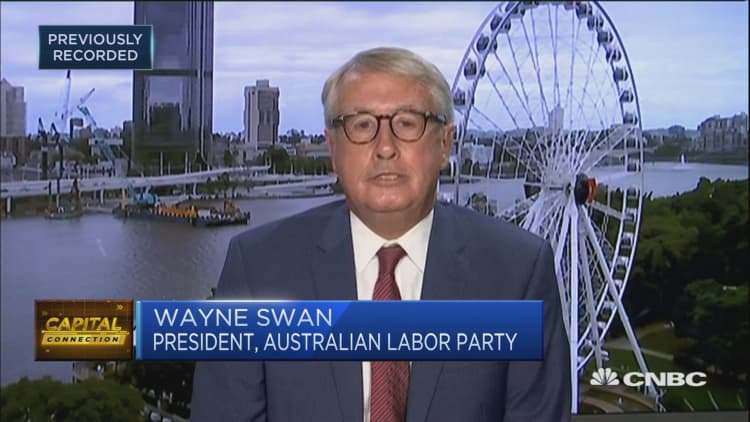
In the depths of the financial crisis of 2008 and 2009, international leaders banded together, held emergency meetings and pushed out stimulus to buttress the world economy, said a former Australian treasurer.
"Those sets of decisions meant that the global financial crisis, which became the Great Recession, didn't turn into the Great Depression," said Wayne Swan, who was Australia's treasurer from 2007 to 2013.
The "big difference" between the handling of that crisis and the current coronavirus outbreak, said Swan, is that there was global coordination back then.
"What's missing here with this health crisis, which is going to have profound economic effects as well, is that sort of determination for coordination," he told CNBC's Matthew Taylor on Friday.
Instead, there has been an "isolationist" approach, particularly in the United States, he said. "What is really absent is that sort of coordination and political leadership."
The world has scrambled to deal with the coronavirus pandemic that first began in China last year. It has since infected more than 125,000 globally and killed at least 4,600.
Besides China, countries such as Italy, Iran and South Korea have been hit hard by the virus as well.
Arnab Das of Invesco agreed that world leaders need to do better in addressing the evolving situation.
He pointed to U.S. President Donald Trump's travel ban on 26 European countries and comments by European Central Bank President Christine Lagarde as "unhelpful" examples. Lagarde said she wasn't here to "close spreads" in the bond market, but later appeared to walk back from that statement.
The travel ban signals that leadership is there, "but it's kind of closing things down," said Das, a global market strategist at Invesco.
He added that cooperation and coordination are "needed most to solve this problem in the quickest possible way."
Swan, who was also a former deputy prime minister of Australia, said he worries that there won't be "public faith" to support policy measures, unless there is seen to be "some degree of coordination" among the larger economies.
Faith in public policy
It's crucial that government leaders have the trust of their people, said Swan.
"We have seen a number of stimulus packages ... and they're really important. The construction and shape of those is important," he said, describing fiscal policy as "absolutely critical" to deal with the effects of the crisis given that monetary authorities don't have much power left.
"But unless people have confidence that the authorities, that their leaders are in control, (the packages) won't be anywhere near as effective as they should be in terms of their economic outcomes."

A survey by Freelancer Limited found that 41.6% of more than 19,000 respondents were not satisfied with their government's response to the virus outbreak. Additionally, 41.4% said their most trusted source of information was the internet. Health officials and the government were chosen by 30.3% and 22.5% of respondents each.
While the world is not in as dire straits as in 2008 and 2009, "we're starting to enter that territory unless governments around the world get a grip ... on targeted fiscal policy," Swan said.
"If we're not careful, we'll be there pretty quickly."
– CNBC's Silvia Amaro contributed to this report.


